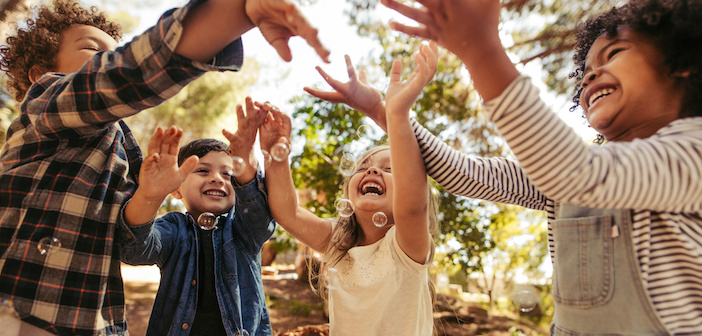Forget oft criticized and debated parenting styles of the past like “tiger” and “helicopter,” the new term du jour for our anxiety rich world is “toxic parenting.”
John Marsden, one of Australia’s most esteemed educators and an internationally best-selling author of young adult fiction, is sounding the alarm on new parenting habits he’s defining as toxic for children’s mental health.
In his new book, “The Art of Growing Up,” Marsden writes, according to The Guardian, “of the problematic state of parents being in love with their children, rather than loving them.” He warns of overprotective, obstacle clearing parents who “cosset and fret over their offspring” rather than allow them to learn from their mistakes and experience inner, personal growth. In recent years, he’s observed panicked, antiseptic, risk adverse, “free range” parents who act like overprotective guardians, and less like parents who openly allow their children to have their own experiences and learn from them. And this can also take a serious toll on mental health.
Many educators, youth counselors, and parents worry about the rising levels of anxiety and depression in children and adolescents, and their fears are not unfounded. According to Psychology Today, our high school and college students of today are five to eight times more likely to meet the criteria for a diagnosis of major depression and/or anxiety disorder compared to fifty years ago.
Much of this anxiety is understandable for anyone and everyone glued to their device’s doomsday newsfeed on this rapidly warming planet. It almost feels at times that if you’re not nervous, you’re not paying attention. This pervasive anxiety makes us behave defensively, and, according to Marsden, festers a parenting style of overprotection, to the detriment of the child.
“It’s not that people are setting out to act destructively, but their common sense and instincts seem to have been overridden by other considerations,” writes Marsden. “The emotional damage (to children) is coming from an anxiety which often approaches panic.”
Expat parenting is an entirely different ballpark of anxiety, with cultural and language differences, a web of visa forms, school applications, and even the occasional embassy alert. Couple this with the specific challenges you face while living as an expat family in China. We’ve all juggled though VPNs to finish a project, or struggled to communicate needs in broken Chinese. It’s hard not to worry that all you’re not doing is never enough, especially with the avalanche of expectations we place on ourselves and families.
What’s the solution? A start could be as simple as play.
Marsden is also the founder and principal of two private schools in Victoria, both costly to attend and nestled in vast bushland campuses. In his schools, students explore the outdoors, cooperate, learn hands-on skills, exercise, avoid all that simulated reality on their screens, and most importantly, they play. They are allowed to explore the world with gentle encouragement, observe scientific principles occurring in nature and learn skills with real applications.
These principles can easily be engaged in our everyday parenting. For us as expat parents in Beijing, summer camps, science focused playdates, exploring parks around Beijing, team sports, cultural and art events can create kids with their own strong character. Just limit device use and encourage play. Children need some level of autonomy and a variety of experiences to grow. A highly researched, vouched for and controlled experience isn’t the same as one that’s more in the moment, creative and spontaneous. And living successfully in China requires a dynamic, observational, open-minded outlook anyway, so why not allow our kids to try it on their own —without our constant interference.
Photo: Adobe Stock




